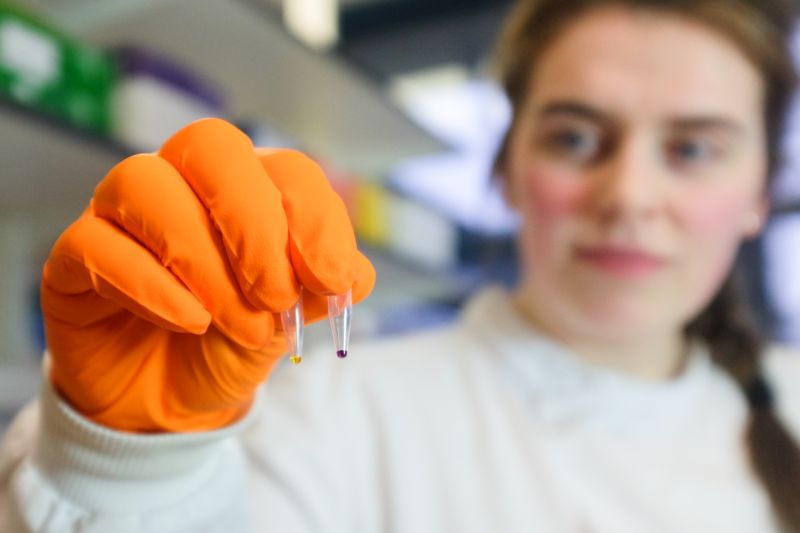
Sensing technology is being used to enhance the accuracy of detecting common infections in livestock which will help reduce the use of antibiotics in farming.
Livestock disease costs the UK economy an estimated £1 billion per year in lost productivity and mitigation, and is a major issue for the global industry.
Common infections in dairy and beef cattle, such as bovine viral diarrhoea (BVD), can cause serious immune suppression, bovine pneumonia and calf mortality, and often expensive treatment of secondary infections with antibiotics.
Veterinary diagnostics specialist Biotangents is using sensing technology to enhance the accuracy of its point-of-care testing platform.
In collaboration with the University of Strathclyde and CENSIS – Scotland’s Innovation Centre for sensing and imaging systems, and IoT technologies – Biotangents is developing an electrochemical sensing system to upgrade its prototype on-farm testing equipment.
Currently, the kit is used to test for BVD and relies on individual interpretation of test results, but this could be replaced by the updated technology.
Specialist sensor systems have the potential to provide a more definitive result, helping to increase the accuracy of diagnosis.
Historically, diagnostic test results for livestock diseases could take up to one week to be returned from a central lab.
However, Biotangents’ test system can produce BVD test results on the same day and potentially within one hour.
By allowing vets to extract DNA from a blood sample on site and detect infection quickly, any affected animals can be isolated quickly for remedial action, preventing the spread of disease.
The point-of-care test also aims to make the use of antibiotics more targeted, lessening the risk of livestock resistance to treatments.
Biotangents are aiming for future iterations of the Moduleic Sensing system to be able to test for a number of different infections and diseases at the same time, from BVD to mastitis.
The business recently secured £1.5 million of new investment for the development of its technology, following a second round of fundraising.
Dr Andy Hall-Ponselè, founder and Operations Director at Biotangents, said: “The management and treatment of infection is essential to helping cattle stay healthy, improving welfare, and ultimately making the industry more sustainable.
“An accurate, speedy diagnosis is the first step in helping to limit the spread of diseases, such as BVD, which can be passed on by cows touching noses or sharing troughs.”
He added: “Five new infectious diseases are emerging each year, and many of these can be passed on to humans. By using our advanced Moduleic Sensing diagnostic platform, we aim to enable vets to identify and manage infectious diseases at the earliest possible opportunity and minimise their chances of spreading.
“Harnessing expertise from both CENSIS and the University of Strathclyde has been an invaluable step towards a fully automated diagnostic platform that can further enable vets in this respect and additionally reduce the need for unnecessary antibiotic treatment.”
